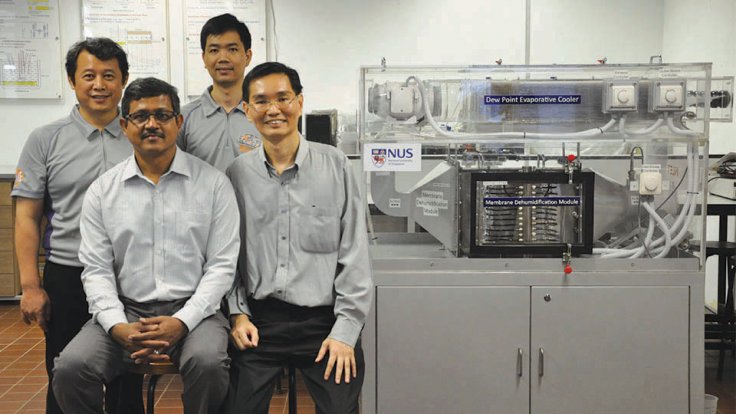
Researchers from the National University of Singapore (NUS) have developed a new water-based air-conditioning system which can cool air up to 18º Celsius without the use of energy-intensive compressors and environment harming chemical refrigerants.
The new air conditioner has the capability to replace the age-old power consuming technology which is still used in the modern-day air-conditioners. This AC technology could be used for both indoors and outdoors and are portable devices which can be customised to adapt to various weather conditions.
The eco-friendly cost-effective air conditioner consumes 40 percent lesser electricity than the currently used compressor- based variants used in homes and commercial buildings. It also accounts for 40 percent lesser carbon emissions. The water-based cooling system can be a safer alternative to chemical refrigerants such as chlorofluorocarbons and hydrochlorofluorocarbons.
The system could produce 12 to 15 liters of potable drinking water per day while generating cool and dry air.
Prof. Ernest Chua, who led the research team from NUS Faculty of Engineering said, "For building located in the tropics, more than 40 percent of the building's energy consumption is attributed to air-conditioning. We expect this rate to increase dramatically, adding an extra punch to global warming."
The currently used air-conditioning system requires more energy to remove moisture and cool the dehumidified air. The NUS engineers have developed new technology which involves two separate systems to perform two separate functions. It has improved the efficiency of air conditioning and hence reduces the energy intake.
Innovative membrane technology used in the new air conditioner involves a paper-like material to remove moisture from the humid outdoor air. Dehumidified air is later cooled by a dew-point cooling system that uses water as the cooling agent. But, unlike vapor compression air-conditioner, the system does not discharge hot air into the environment. Instead, it releases a cool air stream which is less humid than the environment's humidity and thereby reduces harmful effects on the micro-climate.
The technology may be made adaptive to different weather conditions, including humid climate in the tropics and arid climate in the deserts. It could also be used in clusters of buildings in an energy-efficient way. The technology is better suited to delicate equipment areas like field hospitals, armored personnel carriers, as well as operation decks of navy ships and aircrafts.









